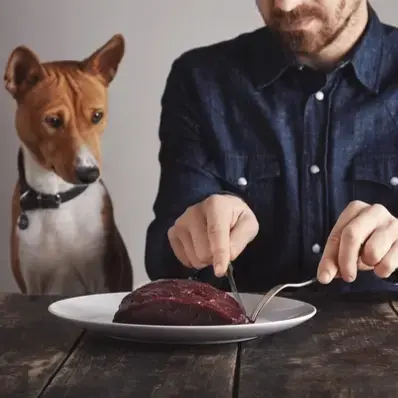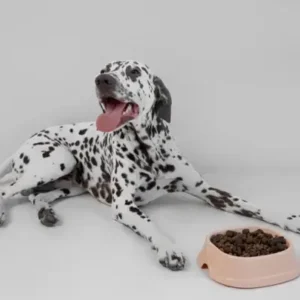Reasons Why a Dog Might Stop Eating
If your dog breed refuses food, identifying the cause is the first step in helping them recover.
Common reasons include:
Medical Issues
- Illnesses (infections, kidney disease, cancer, pancreatitis)
- Dental problems (broken teeth, gum disease, mouth pain)
- Digestive issues (nausea, bloating, constipation)
- Side effects from medications or recent vaccinations
Behavioral Causes
- Stress or anxiety (moving, new environments, separation anxiety)
- Depression or emotional distress
- Picky eating or food aversion
Dietary & Environmental Factors
- Spoiled food or dislike of a new diet
- Overfeeding on treats, reducing hunger for meals
- Sudden diet changes causing stomach upset
Signs That Your Dog is in Danger
If your dog hasn’t eaten for more than 24-48 hours, watch for these warning signs:
- Lethargy and weakness – Low energy and reluctance to move
- Dehydration – Dry gums, excessive panting, sunken eyes
- Weight loss – Noticeable rib visibility or rapid muscle loss of gastrointestinal distress
- Refusing water – A serious emergency requiring immediate vet care
What to Do If Your Dog Won’t Eat
If your dog is refusing to eat, it’s important to identify the cause and take steps to encourage healthy eating habits.
Here’s what you can do to help:
- Rule out health problems – Check for other symptoms and visit the vet if necessary.
- Offer different foods – Try warming up their meal, switching to wet food, or adding low-sodium broth.
- Create a stress-free feeding environment – Reduce noise, keep feeding areas calm, and establish routine mealtimes.
If your dog refuses to eat for more than 48 hours, seek veterinary assistance.
Can Dogs Go Without Water?
While a dog can go several days without food, they can only survive 2-3 days without water. Dehydration sets in quickly and can be fatal.
Signs of dehydration include:
- Dry gums and excessive panting
- Loss of skin elasticity (try the “skin tent” test)
- Lethargy and sunken eyes
Encourage hydration by offering fresh water, ice cubes, or hydrating foods like bone broth.
Preventing Food Refusal in Dogs
While a dog can technically survive a few days without food, prolonged fasting is dangerous and can lead to serious health risks. If your dog refuses to eat for more than 24-48 hours, it’s time to consult a vet.
- Stick to a consistent feeding schedule
- Avoid sudden changes in diet
- Ensure food is fresh and appealing
- Provide a stress-free eating space
- Schedule regular vet check-ups
Keeping a close eye on their behavior and hydration is key to ensuring their well-being.








